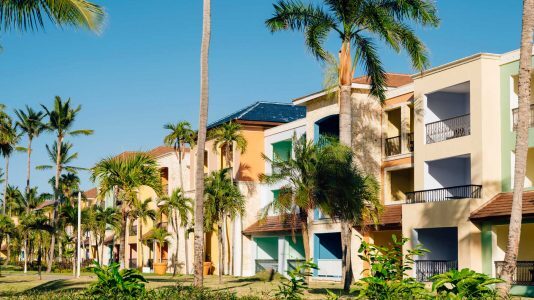Best New Places to Retire Around the World
 Places to Retire Around the World
Places to Retire Around the World
More than ever, American seniors are looking New Places to Retire to abroad. In 2004, an estimated 255,000 social security checks were sent to countries outside the United States.
In the last twenty years, the advent of new technology, namely the Internet, has produced the global community. It doesn’t matter where you call home, access to bank accounts, tax returns and communication with friends and family with just one click. This in itself has made retreat abroad more feasible and attractive for many seniors who may have never considered an exotic, foreign location to live their golden years.
Some places are better New Places to Retire, based on key factors such as tax liability, property costs, the ease of obtaining a residence permit, health care, climate, and culture. Many retired people have had to give up his dream of living abroad because he has grossly underestimated the cultural and financial burden associated with his region of choice. Selecting a pension location abroad must require careful research and planning. According to an article in the British newspaper, The Times on January 20, 2008, extensive research on this topic by the Homebuyer and Property Investor Show provides a list of the 10 most popular retirement countries based on the key factors mentioned above. Following are the top five countries on this list, along with a brief overview of the report’s findings:
1. Cyprus
Currently, foreign pensioners who have lived in Cyprus for at least 183 days are taxed on their retirement income at a rate of 5% per year. Otherwise, the standard rate is not a tax on the first USD 28,516.46 and then rises to 30% at USD 53,085.05.
Assets in the United States, such as bank accounts and equity portfolios, are taxed by the IRS. This situation can be prevented by moving assets to an offshore account and then bringing them to Cyprus. Cyprus has no inheritance tax; however, expats must provide documentation that all ties with their previous country have been broken to enjoy that benefit.
The starting price for real estate in Cyprus is around USD 150,846.69, but this is likely to continue to rise as the area gains popularity. Stamp duty (a percentage paid on certain documents such as loan contracts) is 0.15% for real estate up to about USD 254,626.68 and 0.2% on more expensive homes. There may also be a transfer fee of 3% from the first $ 127,297.51
USD, 5% on houses with a value of $ 127,297.51 USD – $ 254,626.68 USD, and 8% on houses with a value higher than $ 254,626.68 USD.
Retired people do not need a visa to move to South Cyprus, but a temporary residence permit is required and must be applied for upon arrival in the country. To purchase real estate, you must prove that you have sufficient resources to live in Cyprus without working – currently the minimum is around USD 15,672.63 annually.
Medical care is provided by the government and through private medical institutions. Medical government services can be used by anyone; However, American retirees have to pay the nominal costs as prescribed by the system, since they are probably not eligible for free treatment.
2. Panama
American retirees will feel at home in Panama because English is often spoken and the main currency is the US dollar.
All income from assets outside of Panama is TAX-FREE. However, there is a transfer tax of 5% on goods and services. There is no inheritance tax, but gifts on real estate may be subject to a levy of 4% – 33% depending on the relationship with the beneficiary. Again, American retirees will still have to pay income tax to Uncle Sam as long as they remain US citizens.
Buying a home in Panama is surprisingly expensive and you can expect to pay around USD 215,000 for an average home. Anyone buying property can apply for a permanent residence permit one year after he has applied for a residence permit. The total value of your property and local bank accounts must be at least USD 200,000 to be eligible.
Under the “pensionado” system of Panama, retirees are eligible for a 15% discount on hospital services in private clinics, 10% discount on medicines, 20% discount on medical consultations and surgical procedures and 15% discount on dental and optical services.
3. France
Retired people can certainly appreciate France’s lower tax rate for “retired people” – a retired couple can have a combined income up to about USD 102,000 and pay around 14% tax. That might be better than what could be expected in the US when considering New Places to Retire.
Housing is quite expensive in France, with the average real estate for around USD 275,000 – one of the highest areas to buy real estate in the study and prices are only rising. Purchase costs are 7% for existing houses, 3% for new-build homes and property costs are around 6%.
If you spend a year longer in France than in any other tax area, you are automatically
considered as a resident for tax purposes.
France has a public health system and although retirees are not required to participate, they need a specific plan that covers all their medical costs. Usually, the public health system pays 70% – you will want to view a supplement that benefits the other 30% that is not covered.
4. Belize
The official language of Belize is English, has a tropical climate with a clear rainy season and benefits from low living costs.
The income tax is 1.75%, but some income, such as pensions, is tax-free. There is also no capital gains tax or inheritance tax for people who retire to Belize. Personal belongings such as cars and boats can be imported duty-free. The maximum tax for an item is $ 15,000.
If you dream of living on the beach for New Places to Retire, a three-bedroom home will cost you around $ 375,000. Associated stamp duties are 5%, legal fees are around 2% and there is a transfer tax of 1.5% when you sell a property.
If you are 45 or older, you can apply for a permanent residence permit through the Belize government pension plan. As a “qualified retiree” you are eligible for tax exemptions and incentives, as well as other benefits.
Belize has national tax-financed healthcare, but medical services may be missing. However, private health care is available and cheap.
5. Spain
Spain is a very popular retirement destination, but due to its high tax requirements, it may not be the best choice in general. Spanish residents (who spend more than 183 days a year) can expect to pay up to 40% of total income, regardless of origin. The capital gains tax is currently 18% and the inheritance tax for expats is anywhere from 7.65% – 34%, depending on the amount inherited and the relationship of the person you are experiencing.
Spanish residents are also liable for paying a wealth tax of 0.2% to 0.5% of their assets worldwide.
An average retirement property costs around USD 268,000 and real estate costs can add an extra 10%.
There is free universal healthcare in Spain. To be insured, you must have a social security number issued by Spain. To get one, you must work or become self-employed to pay for the system. Otherwise, you should look at private health insurance policies.
Although you can initially consider the climate, breathtaking views and delicious food when you decide where you will retire abroad, the choice New Places to Retire must be on the basis – your finances. The cracking of the most important figures will ultimately determine whether you can afford to make your retirement fantasy come true.




